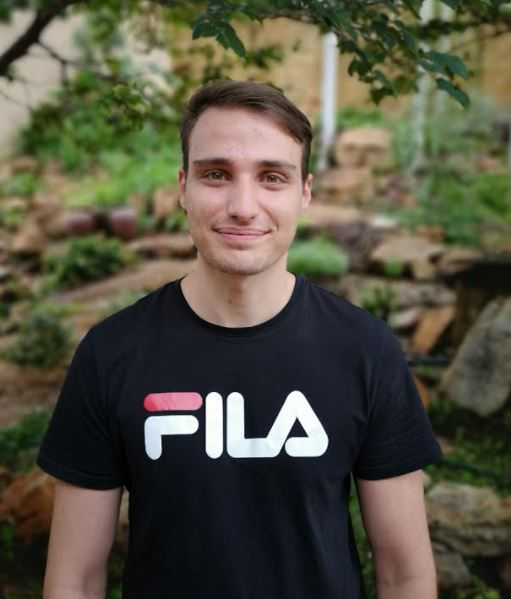Booting Up South Africa
Back in the day, when I was but a youngling, I was faced with the tough decision as to what I wanted to study in varsity. It’s a scary thought knowing that you’re chartering a course for the rest of your life. The uncertainty of everything was causing me great stress and I reluctantly took a leap of faith into the world of Computer Science.
Now at this point, I hadn’t even seen a line of code in my life. I simply chose the degree because video games are awesome and I was going to make them. This is definitely not something you should be basing your life decisions on, but I was lucky enough to end up falling in love with code and the problem-solving of it all.

But what if every semicolon I typed was just a means to an end and I absolutely hated being a developer? What if I chose wrong? I’ll be speaking about the importance of introducing code and IT to all children as opposed to those lucky few who stumble upon it. Software has taken over the world, ingraining itself in every little aspect of our life, including our watches, glasses, and even fridges. We are forever hearing how tiny the developer community is in SA but maybe that’s a reflection of our broader country falling behind in a global drive for technology.
My dad once asked me to fix his printer and after saying I couldn’t, jokingly questioned why he even sent me to study Computer Science. Now, this might be a reflection of his age but then why am I the de facto Apple techie for my extended family, despite having never owned one. A few google searches later and I’ve hopefully solved the issue but the problem remains, to the outside world being a programmer or developer is just an enormous black box.
Not everyone will study to become a software engineer or a database specialist but surely there is value in people knowing more about the device they spend 8 hours a day using. They should also know why making ‘thomas’ your Netflix password is gonna get your account stolen and Gossip Girl plastered across all your suggestion pages. The only negative to this is that there wouldn’t be as many 5g theorists brightening up our day with their various conspiracies.

I had IT as a subject in grades 8 and 9 and can vividly remember only ever playing stick cricket. There were no lessons, no tests and absolutely nothing taught. When the time came to choose my specialized subjects, IT didn’t even cross my mind, because at that point it was just an abstract idea to me. But why can’t children learn about basic logic and simple code? Programming languages should become a basic literacy in the digital age and could be taught to children using fun and interactive software. Not only will these exercises be used as a stepping stone into the broader IT world but they’ll also help foster thinking and mathematical abilities.
I strongly believe that IT should be taught from a younger age and more importantly, in a way that matters. This could be an opportunity to provide our nation with basic computer skills. Even before covid, our world was becoming increasingly online and for everyone to stand a chance at the best opportunities it’s highly vital we move in that direction.
IT should be introduced in primary school where learners can be taught basic computer and coding skills and learn more about packages such as Word, PowerPoint and excel. They could also be taught about computer safety and how to move about online without endangering themselves. You might think your child is too young to be surfing the internet or playing multiplayer games but they’re probably doing it anyway. Computers are an issue in SA as they aren’t usually available in many schools. However, even cheaper tablets could serve this purpose. Apps like Daisy the Dinosaur teach ideas like loops, sequencing, and events all bundled in a cute drag-and-drop game format. This type of software could be made highly accessible to our youth if we were just able to prioritize it.

By grade 8–9, similarly to how basic accounting is taught, we could introduce simple code in an easy-to-use language like python or even something graphical like scratch where students could make animations and games. Important hardware components could be explained briefly and a deeper understanding of technology could be provided. The idea isn’t to overwhelm children with complex data structures or understanding binary but rather to give them a background that will pull them into the digital world with an appreciation for how it works and what to be careful of. When grade 9 comes around and a child has to choose their subjects, they might just give IT a go and who knows what that might lead to.

Although my ideas and hopes might seem a bit naive I truly believe that we need to drive SA into a new age and hopefully create a budding developer community in the process.
